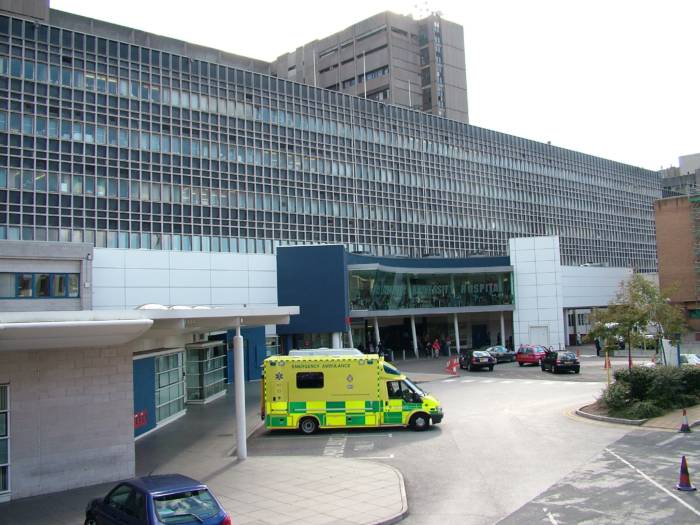
Latest
New drug trialled in Liverpool could save the vision of millions
4 years ago

A new drug trialled at a Liverpool hospital could help to save the eyesight of millions of people with diabetic eye disease.
The drug, called faricimab, was trialled at Liverpool University Hospitals NHS Foundation Trust (LUHFT), in the Trust’s Clinical Eye Research Centre (CERC).
The CERC, located within the Royal Liverpool University Hospital, was selected by the biotech company Roche to be part of an international study into the treatment of diabetic macular oedema, which is the most common cause of sight loss in people with diabetes. The CERC recruited the most patients of any research site in the UK.
The results of the study have now been published in leading medical journal, The Lancet. They show that faricimab maintained vision, extending time between treatments. If approved for use, it means that patients will be able reduce their need for injections from every four to eight weeks to potentially just three times a year.
Professor Ian Pearce, Director of the CERC and Consultant Ophthalmologist at Liverpool University Hospitals, was the Principal Investigator of the study and author of The Lancet article.
He said: “Attending many different diabetic clinic appointments each year is hugely time-consuming for people with diabetes. Reducing the need to attend so many clinic appointments will be a great help to these patients.
“This study shows that faricimab has the potential to reduce the burden of treatment for our patients, whilst maintaining excellent treatment outcomes and preventing sight loss.

Professor Ian Pearce
“I would like to thank all our patients who agreed to be involved in this trial. The Clinical Eye Research Centre is fully committed to gaining access to cutting edge treatment for the people of Merseyside and beyond by participating in these global clinical studies.”
Globally, over 460 million people live with diabetes and this figure is likely to rise to over 700 million in the next 35 years. Diabetes affects the eye by damaging the blood vessels in the retina, known as diabetic retinopathy. High blood sugar causes the fine blood vessels in the retina to leak fluid, causing waterlogging, or to close, resulting in the retina becoming starved of oxygen.
Professor John Brennan, Interim Medical Director at Liverpool University Hospitals, said:
“The outcomes of this trial for patients with diabetic macular oedema are extremely encouraging, not only for our patients but for people around the world. I’d like to thank Professor Pearce and his colleagues at the CERC for their continued commitment to developing these new treatments, many of which ultimately go on to have a positive impact on the care we are able to provide our patients.”
Faricimab has recently been licensed as a treatment in the United States and is currently being considered by European and UK licensing agencies. The National Institute for Health and Care Excellence (NICE) are assessing the drug as a potential treatment for Diabetic Macular Oedema.









 Subscribe
Subscribe Follow Us
Follow Us Follow Us
Follow Us Follow Us
Follow Us Follow Us
Follow Us Follow Us
Follow Us











